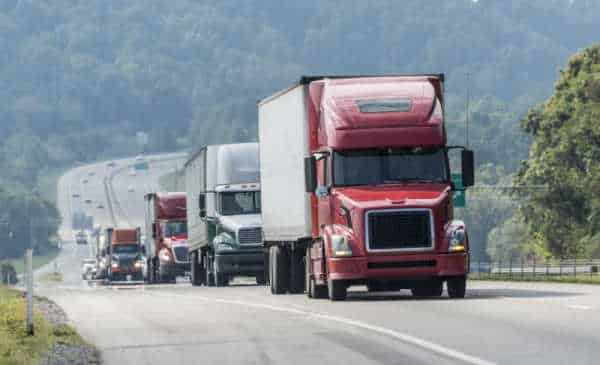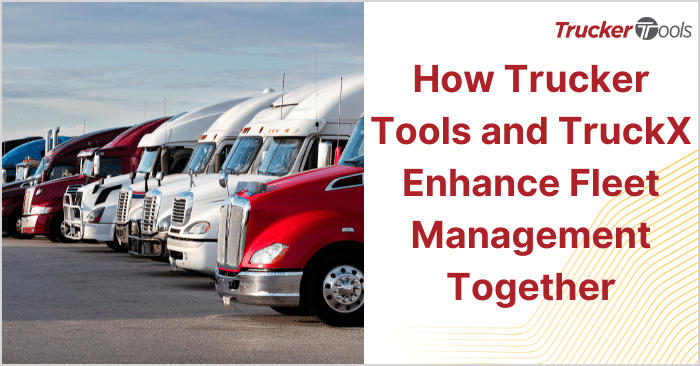When you think about digital load tracking, your thoughts may center on meeting your shippers’ visibility KPIs or the technology’s ability to increase the efficiency of your operations. However, if you’ve thus far been reluctant to implement digital load tracking tech with your drivers and carriers, you may be doing more harm to your business than you realize. One of the major benefits of digital load tracking is that it can reduce liability and risk for your freight brokerage or logistics business. Any time that a driver (trucker or otherwise) is distracted by a ringing cell phone, the risk of collision increases. Not using digital load tracking technology also can affect the risk you assume when freight is reported stolen, missing or otherwise doesn’t make it to its planned destination on time.
Read on to learn more about how using digital load tracking technology can help you limit liability and risk in your business.
Statistics on Making and Accepting Phone Calls, Texting While Trucking
According to research commissioned by the FMCSA, the odds of being involved in a safety-critical crash such as a crash, near-crash or unintentional lane deviation are six times higher for commercial motor vehicle drivers when dialing a mobile phone. When drivers have to call you back to return your check calls, they typically take their eyes off the road for nearly four seconds to do so. Using a hand-held mobile phone while driving a semi can cause drivers to lose their CDL licenses or result in fines of up to $2,750. Employers who allow or require drivers to use hand-held communications devices while driving can face penalties up to $11,000.
If you think texting drivers for load location updates is a safer bet, think again. FMCSA-commissioned research also finds that the odds of being involved in a safety-critical crash such as a crash, near-crash or unintentional lane deviation are 23.2 times greater for truckers who text while driving. According to the FMCSA, texting includes using short message services, instant messaging, pressing more than one button to make or end a call, opening a web page, or any other form of electronic text retrieval or entry. Drivers and employers face the same penalties for texting or requiring texting that they do for using a hand-held mobile phone to manually make or accept phone calls.
How Digital Load Tracking Can Improve Driver Safety
Truckers who are involved in accidents due to cell phone use may suffer serious personal injuries that go beyond the scope of the driver’s insurance policy or your business’ insurance policy. Drivers may need extensive medical treatment or even long-term care to recover. Even if the driver’s policy or your company’s insurance policy covers the damages to the truck and freight and injuries to the driver, insurance rates may increase as a result of accidents. It also can take an enormous amount of time to deal with insurers and get compensated after an accident occurs.
In order to avoid all of the above, consider using digital load tracking technology to receive automated updates on the location of loads while they’re in transit. With the real-time load tracking of Trucker Tools’ Smart Capacity platform, your team receives automatic updates on the location of the truck and load every five to 15 minutes. These updates can be viewed directly in your TMS. Brokers and 3PLs that use digital load tracking in their operations often are able to reduce or eliminate (depending on their contractual obligations with shippers) manual check calls, thereby reducing the risk of accidents that drivers face when answering and returning check calls.

How Digital Load Tracking Can Minimize Losses, Human Errors
If you’ve been wary of dipping your toes in the pool of digital load tracking thus far, consider what you have to gain from a risk management point of view. Digital load tracking minimizes risk by eliminating miscommunication between drivers/carrier dispatchers and your team. When you use a load tracking technology like Trucker Tools’ Smart Capacity in your operations, your team can instantly see where a truck is located in real-time. Team members will know in real-time if the driver has taken the load to the wrong facility or dock. They also can confirm in real-time if the driver has picked up and dropped off on time.
When you use check calls to track loads, your team also is relying on the word of the driver or carrier dispatcher to verify pick-up and delivery. In our experience, most drivers and carrier dispatchers are honest people, but we all know that freight fraud is on the rise in the transportation industry. Double-brokering, identity theft, load board scams and BOL ransoms all can cost you a lot of money and time. It’s much easier to investigate and even recoup a stolen, lost or damaged load when you can check the digital load tracking history on the load.
Interested in further limiting risk in your logistics business? Learn about Trucker Tools’ Integration Partnership with Loadsure.
Schedule a free demo of Trucker Tools’ Smart Capacity.





